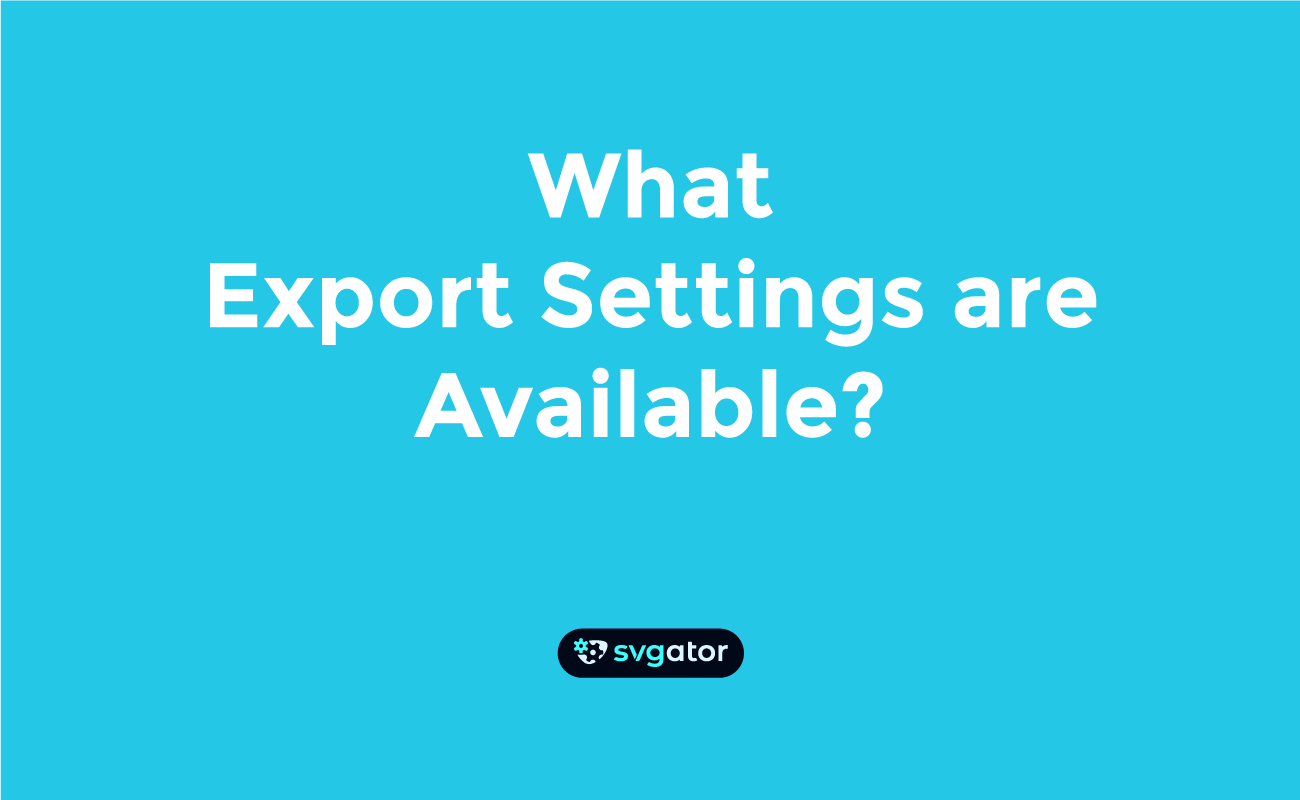Exported file formats
SVGator exports in multiple file formats:
- .SVG files with Web export
- JavaScript
- CSS Only
- Lottie JSON export
- .json
- Optimized .json
- .JS files with Mobile export for React Native
- .DART with Mobile export for Flutter
- Video exports in the following formats:
- .mp4
- .avi
- .mkv
- .mov (with transparency)
- .webm (with transparency)
- Animated Image exports in the following formats:
- .gif
- .png
- .webp
- .zip (png image sequence)

Below you can find more details about the various file formats that SVGator provides:
1. .SVG extension files
The .svg extension files, with a web export option for JavaScript or CSS, are graphics files that contain vector-based graphics suitable for the web.
They offer scalability without loss of quality and can be styled or animated using JavaScript or CSS for web-based applications.
2. Lottie JSON
Lottie animations are represented in JSON (JavaScript Object Notation) format. To incorporate Lottie animations seamlessly across platforms like iOS, Android, React Native, Web, etc., a dedicated runtime library is necessary.
3. .JS extension files for React Native
The .js extension files in React Native are used for iOS or Android export, leveraging JavaScript as the primary language for app development.
4. .DART extension files for Flutter
The .dart extension files are commonly associated with Flutter, Google's UI toolkit used to create natively compiled apps for mobile, web, and desktop from a unified codebase.
Dart, the language used in Flutter, predominantly powers these apps, with multiple .dart files forming the app's architecture, user interface, and functionality.
5. Converting SVG animations to Video formats
Converting SVG animations to Video ensures the following:
- Wider Compatibility
- Sharing and Distribution
- Playback Control (more control over pausing, seeking, and adjusting volume)
- Offline Usage (videos can be downloaded and viewed offline)
- Editing and Post-Processing (enables adding effects, overlays, text, or combining multiple elements into a single video file)
- User Experience Optimization. The video file formats offer broader compatibility, so you can export your files in .mp4, .avi, .mov (with transparency), .webm (with transparency), .mkv
6. Converting SVG animations to Animated Image formats
Animated image formats are useful, and they offer the following benefits:
- Compatibility (ensures broader compatibility across various browsers)
- Simplified Usage (directly inserted into presentations)
- Social Media and Messaging (in social media platforms, email signatures and messaging apps)
- Reduced File Sizes and more: .gif, animated .png, .webp, .zip (png image sequence)
Web and mobile formats (.svg, .json, .js, and .dart) can be exported as either static or animated.
If you choose to export animated SVG, you can set JavaScript or CSS as the animation type.

Note:
When exporting .svg, we usually recommend selecting JavaScript instead of CSS, as JavaScript supports all advanced animators and interactive export options, therefore it will look the same in all major browsers.

But unfortunately, CSS doesn’t support advanced features such as morphing, curved motion path animations, or interactive export options such as starting the animation ‘On click’.

However, you can use this format for simple animations such as CSS loaders.
For more information, please see our compatibility table here.
Discover other useful articles from our Help Center:




Still have questions? Send us an email to contact@svgator.com and we will get back to you as soon as we can.
